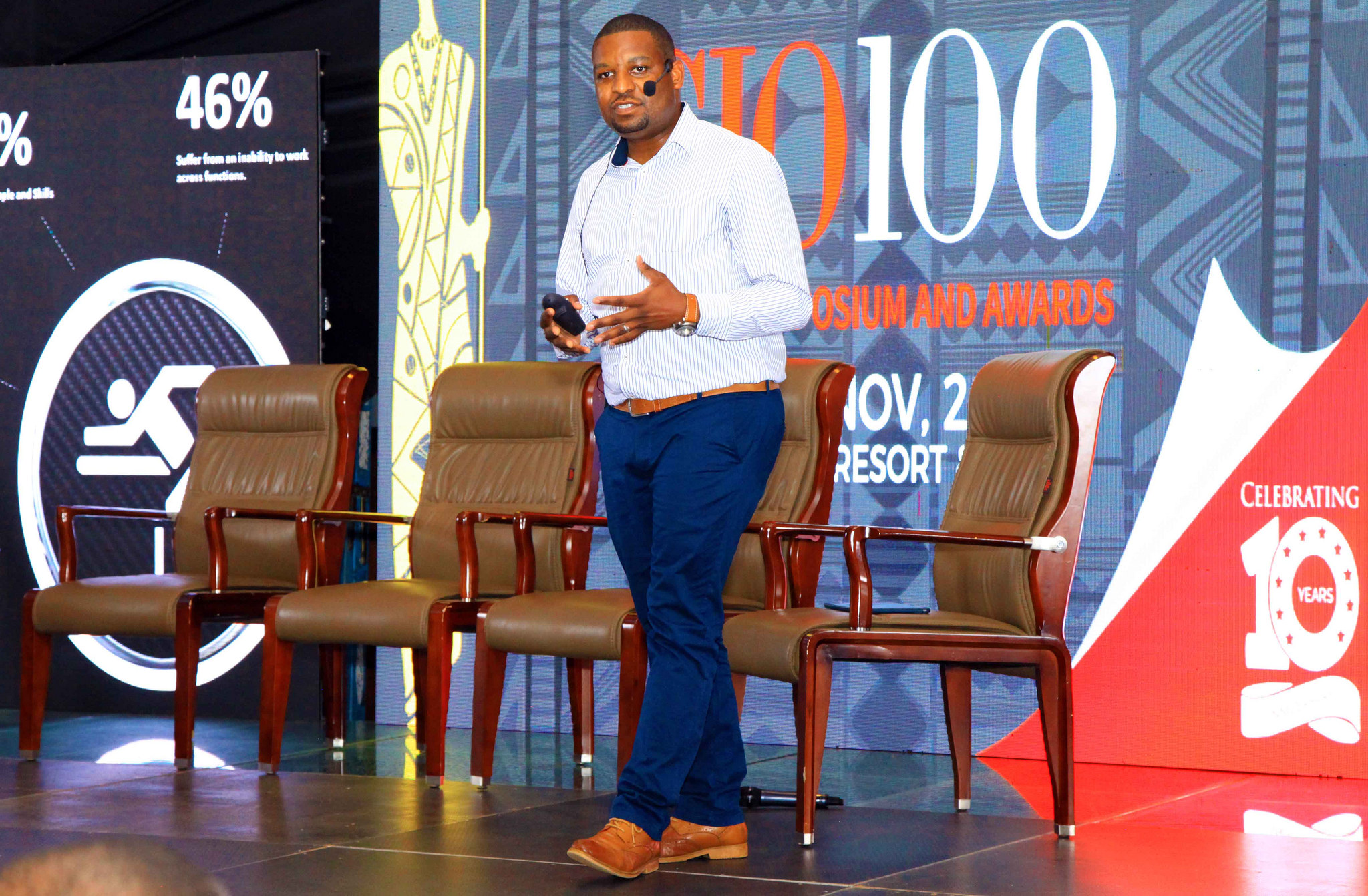advertisement
Disruption is the worthwhile transformation option in enterprises
Digital disruption which has over the years elicited fear of unknown among leaders and incumbents seem the only worthwhile transformation…

Digital disruption which has over the years elicited fear of unknown among leaders and incumbents seem the only worthwhile transformation option, particularly in enterprises deploying new technologies which have the capabilities of disrupting the entire market sectors, George Njuguna, CIO HF Group said during East Africa’s 2019 CIO Year Ahead Forum in Nairobi, Kenya.
In an inspirational video clip run during the forum, Njuguna observed that whereas new technologies have the capability of disrupting various market segments of the economy through enterprises, there’s need for industry players to appreciate that it is more about the application of the new technology than the technology itself that makes a difference.
According to Njuguna, deployment of the new technologies implies that innovation is leveraging technology to define new business models. “Finding ways to apply existing technology to solve problems and leapfrog your competitors can also be regarded as digital disruption,” he noted.
advertisement
https://www.youtube.com/watch?v=xmXpPOFE1z0
Among the key elements to take into account in the journey of transforming enterprises hinge on cyber-security, regulation and talent growth.
“The people transformation agenda require individuals who are both technically savvy and willing to drive a new culture within established organisations. New ways of working like Agile Development demand that technical and business teams are open to change. It’s not just about getting people who are digitally oriented, but more importantly able to influence and work in a constantly changing environment.”
George Njuguna, CIO – HF Group
“As we adopt technology into all aspects of our customer interaction and operations, new risks emerge and top of the list is Cyber Risk. Having an effective Digital Transformation program means embedding data security or security consciousness into all your initiatives. One breach can deal a huge blow to your entire business and it’s important to have the right preventive and responsive measures in place,” Njuguna opined.
advertisement
On industry guideline matters, Njuguna observed that impact of new regulations on Fintech cannot be ignored. “Most of the players who have been using SMS crawling as part of their digital lending decision-making process have been impacted by new set of procedures around data protection.
Although the Kenyan Data Protection Bill is yet to be signed into law, there are implications in the draft bill on how corporates collect, store and share customer data. He noted that the undercurrents of more regulation on Fintech’s and the aspects of being prepared is more important than being in denial.
advertisement
“Just ask any banker how denial impacted their readiness for rate capping. Hope for the best but prepare for the worst through scenarios and stress tests where possible,” Njuguna stated.
Nothing that there is talent scarcity hinging on digital transformation, Njuguna viewed that relatively new and the process of identifying the right skills for organisations are a critical part of success.
“The people transformation agenda require individuals who are both technically savvy and willing to drive a new culture within established organisations. New ways of working like Agile Development demand that technical and business teams are open to change,” said Njuguna adding: “It’s not just about getting people who are digitally oriented, but more importantly able to influence and work in a constantly changing environment.”
While sharing insights on how to benefit from emerging challenges, Njuguna noted that challenges posed by digital disruption are also opportunities. That companies need to invest into digital technology has not been up for debate for quite a while now, but firms should ask themselves how they plan on investing in their digital enablement – and how that plays into their business objectives and long-term plans for competitive success.
Among the challenges Njuguna pointed out hinge on legacy systems which one might think refers to core solutions that organisations procured years ago but Legacy is much more than that.
According to Njuguna, this cuts across systems, processes and people. “It is a way of thinking!” he quipped underscoring that CIOs must lead the way in making tough decisions on what to keep, what to transform and what to replace but all these must be anchored in cultural transformation.